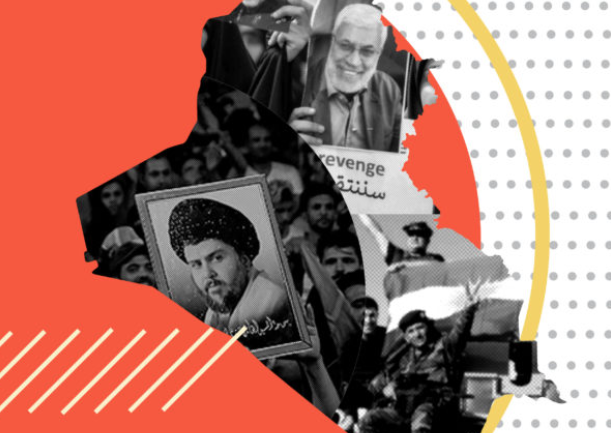Baghdad has emerged as the epicenter of a broader geopolitical struggle between the United States and Islamic Republic of Iran, two hostile adversaries at odds since the Islamic Revolution toppled the American-friendly Shah in 1979.
Amidst these broader challenges, Iraq faced an existential security threat in 2014, after the Islamic State gained strength in Syria, augmented its ranks with foreign fighters, and took control over eastern Syria and parts of western Iraq, including the Iraqi city of Mosul, the country’s second largest city.
The war to defeat this group was brutal and fraught, with the Iraqi military bearing the brunt of the casualties fighting for control over densely populated urban areas and vast expanses of desert terrain. The fighting consumed Iraqi affairs for years, blunted the sharp tensions that underpin U.S.-Iran relations, and focused military efforts on the defeat of a common enemy.
The tensions over sanctions have had a deleterious effect on stability in Iraq and the Middle East, more broadly. The Iranian government has gradually increased its efforts to impose a cost on the United States for using sanctions to end its export of oil, beginning with a series of attacks on oil tankers near the Strait of Hormuz, escalating to include missile strikes on important oil centers in Saudi Arabia’s Abqaiq and Khurais, and then a shooting down an American surveillance drone. In response to rocket attacks inside Iraq, the United States has struck Iraqi militia’s linked to Iran and, in January 2020, assassinated Major General Qasem Soleimani, the now-deceased leader of the Islamic Revolutionary Guards Corp. (IRGC), and Abu Mahdi al-Muhandis, an Iranian-linked actor that oversaw Iraqi militias sympathetic to the Islamic Republic. In retaliation, the Iranian military fired a salvo of ballistic missiles at bases in Iraq, striking targets with precision, but luckily resulting in no American deaths. The strikes still resulted in over one hundred cases of traumatic brain injury in the soldiers at the targeted bases. The tit-for-tat underscores Iran’s appetite for risk, particularly at time when its economy is under siege from U.S. actions.
Inside Iraq, the government has sought to remain neutral, balancing its vital relationship with Washington against its equally important relationship with Tehran. The Iraqi government is also facing a series of internal challenges: incessant protests about corruption as well as post-conflict challenges following the war against the Islamic State. To analyze the future of Iraqi politics, the Foreign Policy Research Institute has gathered five authors to analyze competing political actors and the issues affecting different constituencies and regions. Each chapter includes a series of policy recommendations for governments to consider as they try to assess Iraq’s political landscape. The first chapter, co-authored by Benedict Robin-D’Cruz and Renad Mansour, evaluates Iraq’s Sadrist movement and why, despite Shi’i cleric Muqtada al-Sadr’s prominence in Iraqi politics, the group remains one of the most complex and frequently misunderstood movements in Iraq.
The second chapter, by Pishko Shamsi, focuses on the Kurdistan Regional Government, the competing political actors, and how a failed independence referendum after the defeat of the Islamic State upended the region and prompted a re-evaluation of relations with Baghdad. The third chapter, by Inna Rudolf, assesses the Popular Mobilization Forces, with a focus on Abu Mahdi al-Muhandis, the militia leader killed alongside Qasem Soleimani in January 2020 in an American drone strike outside of the Baghdad airport. The fourth chapter, by Ramzy Mardini, examines Iraq’s Sunni population and how they are coping with the tragedies faced during the illegitimate reign of the Islamic State and the challenges that they now face after the group’s defeat. And the final chapter, by Kirk Sowell, explores Iraqi domestic politics, particularly how key political actors interact with the government in Baghdad and how sectarianism influences politics, and what that may portend in the near future.
This edited volume is intended to look beyond the U.S.-Iran competition in the country and explore the drivers of Iraqi politics to provide needed context for policymakers and practitioners studying the country. It was made possible by support from GPD Charitable Trust, an organization working to build partnerships that lead to a more peaceful, prosperous, and stable world, and in collaboration with the DT Institute.
Download the book here.
Source (Click Here)


 RSS Feed
RSS Feed